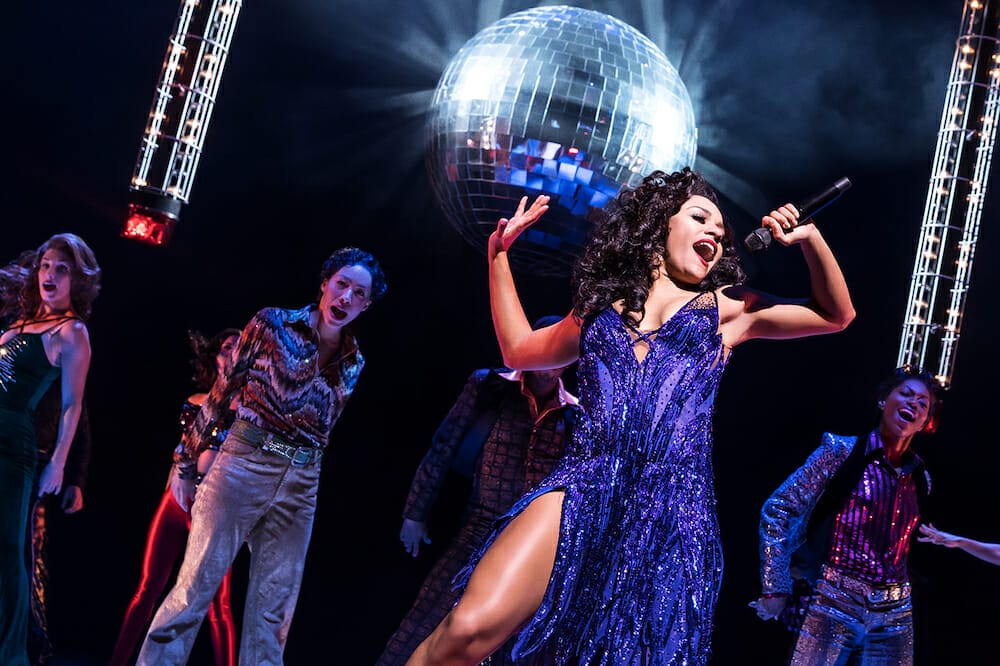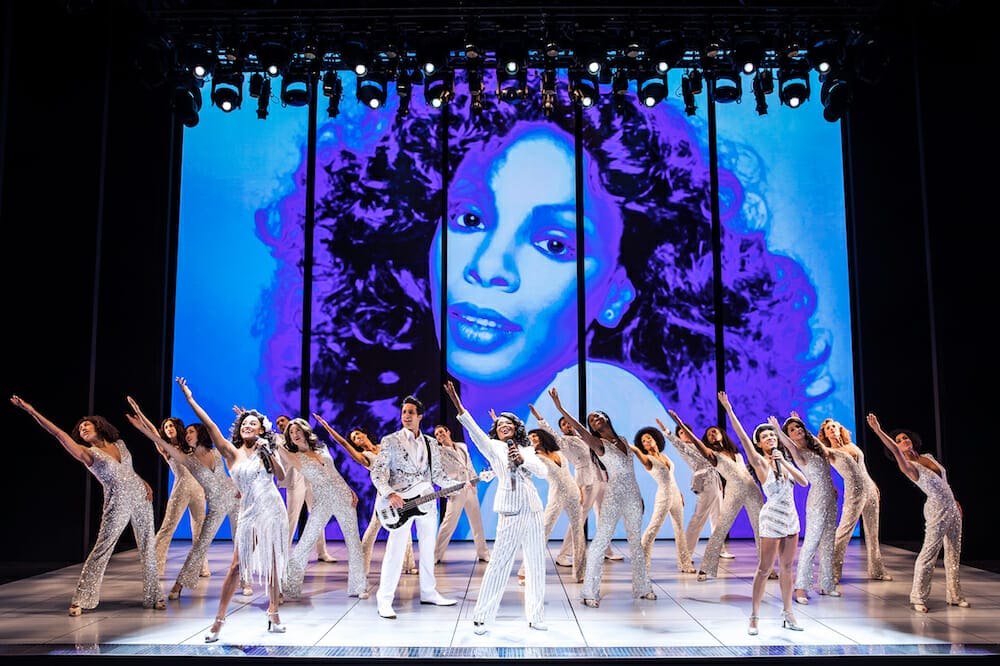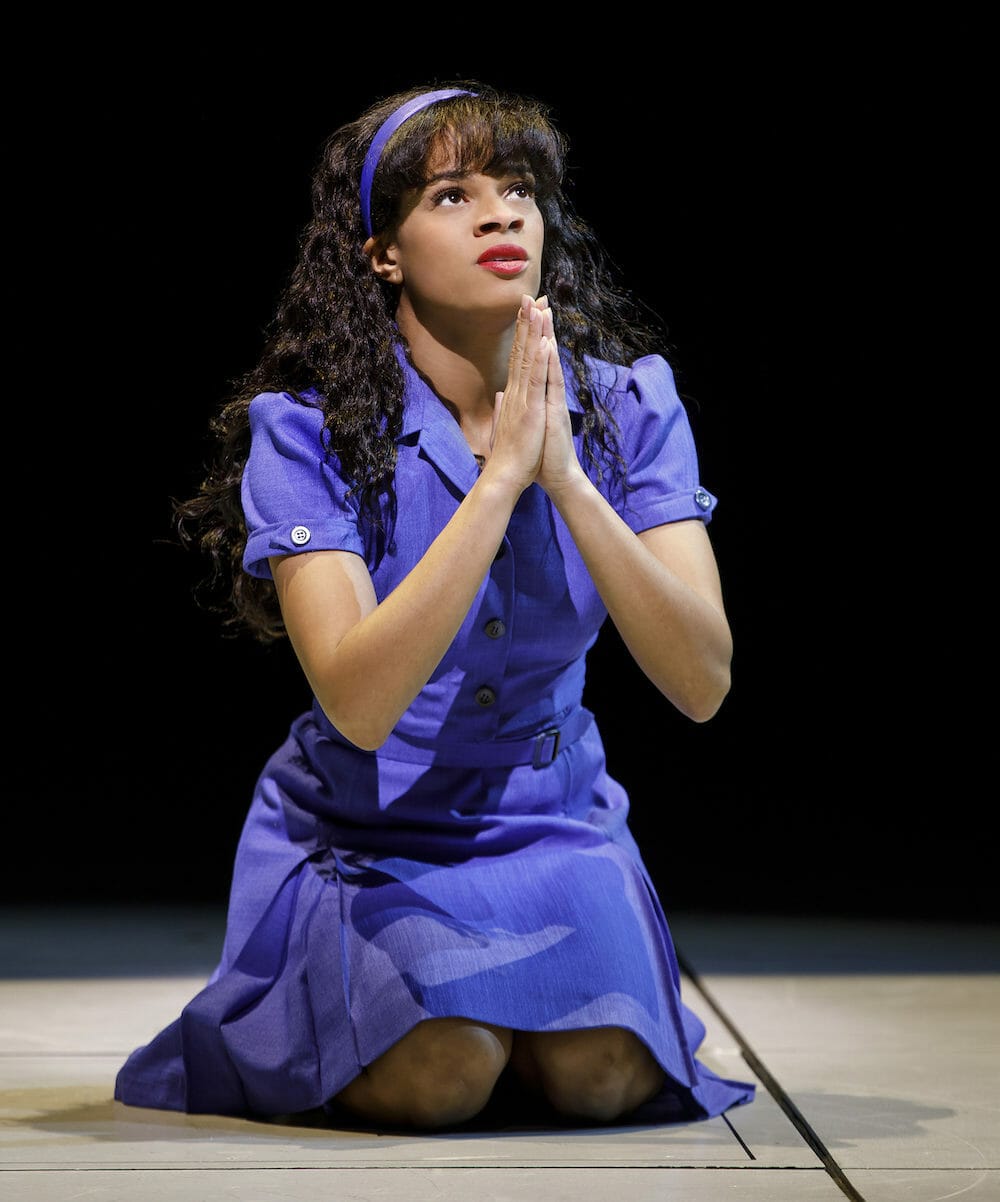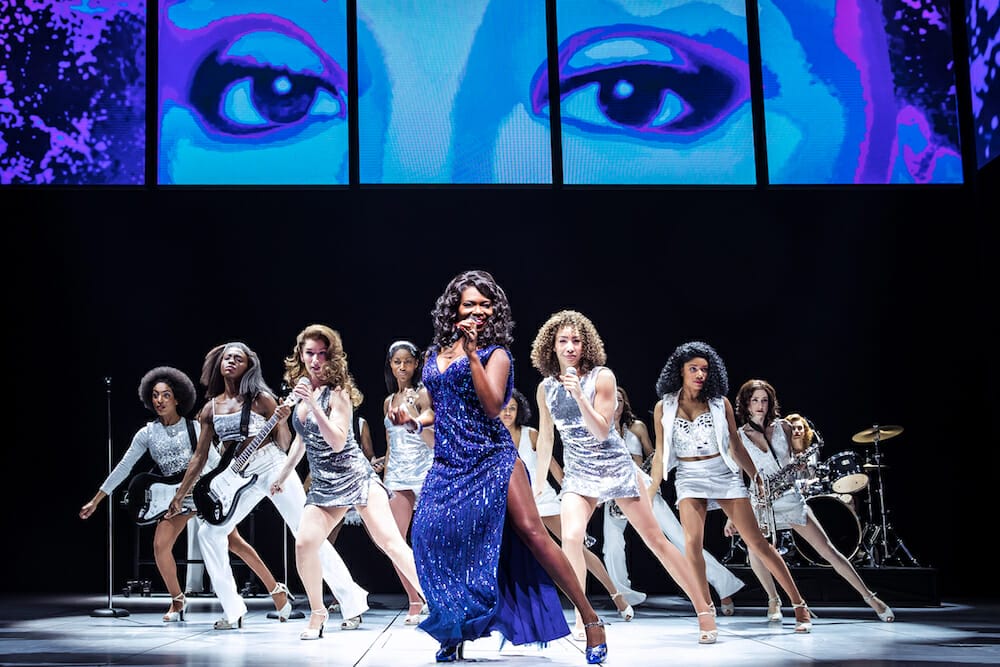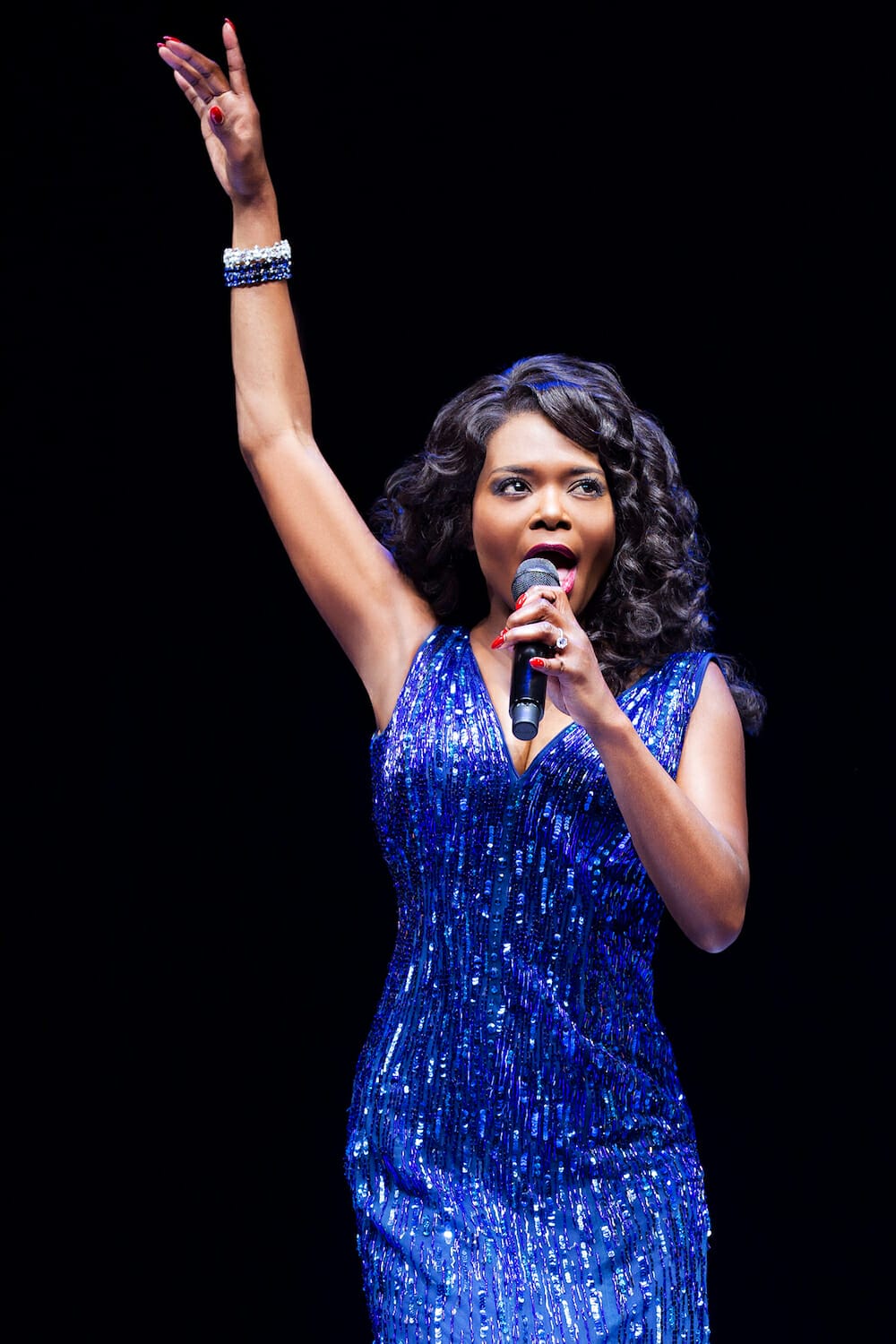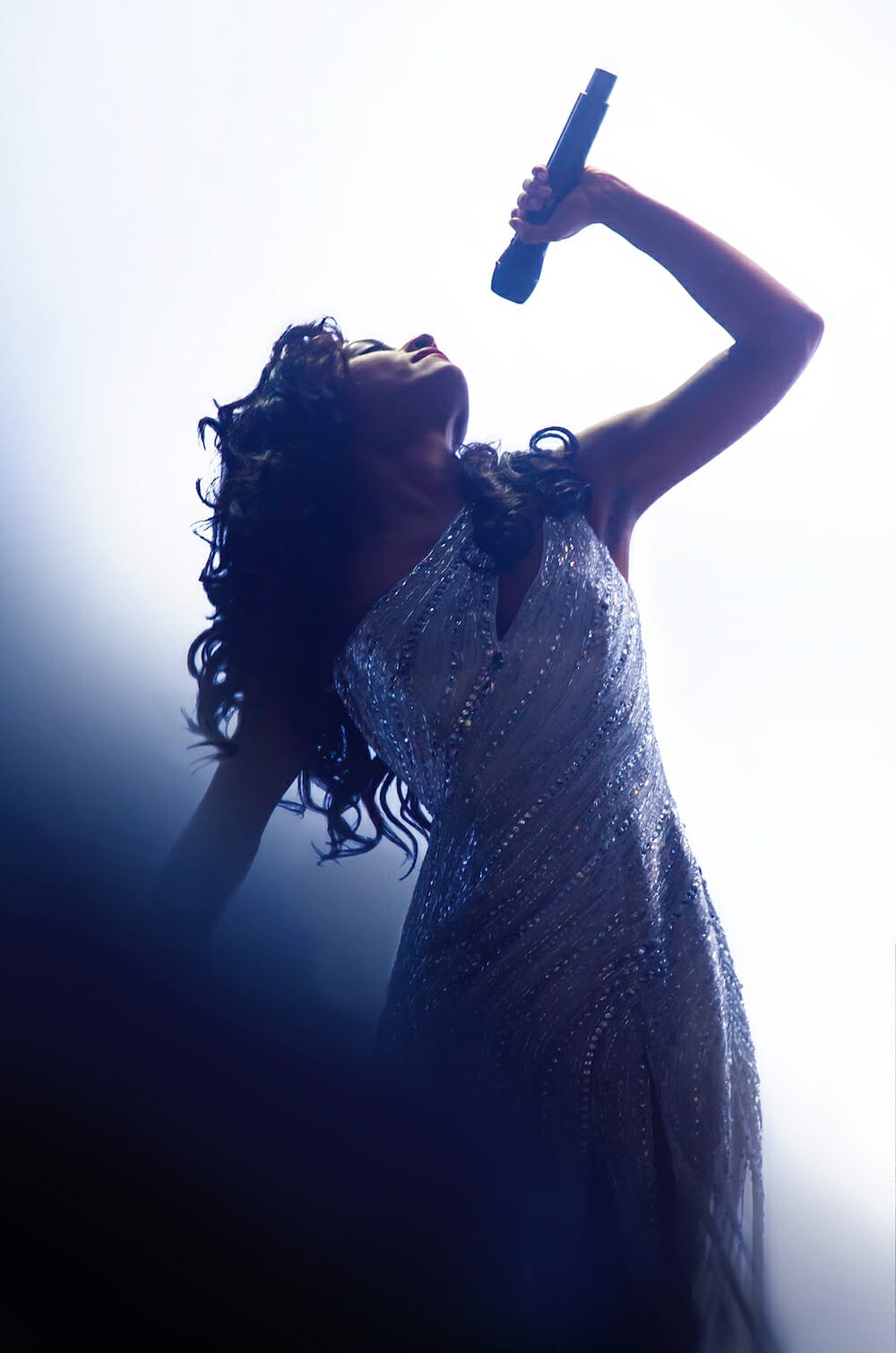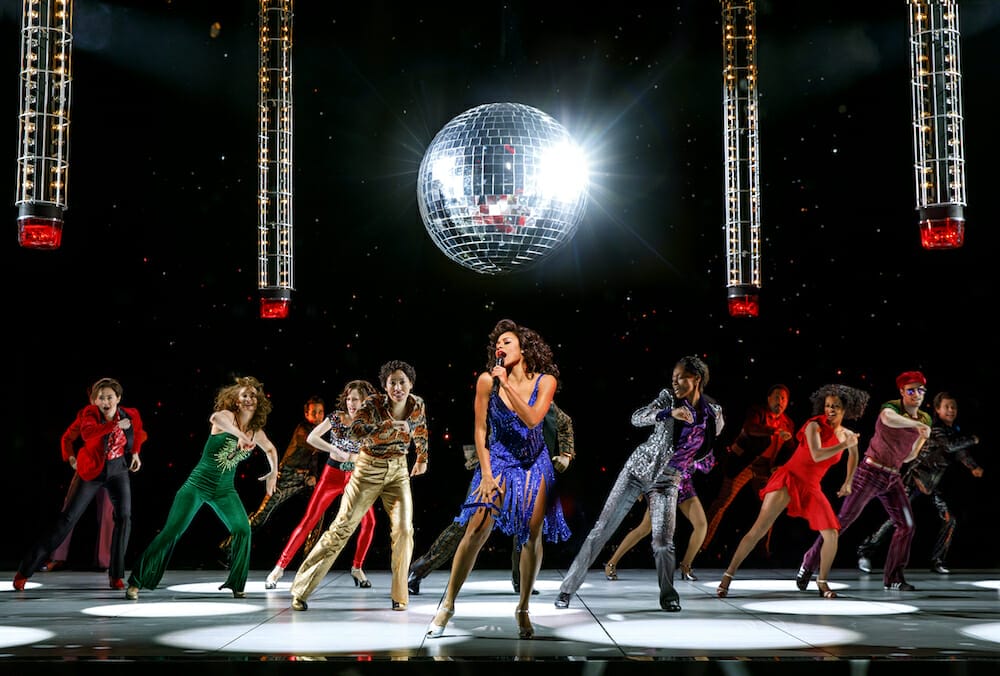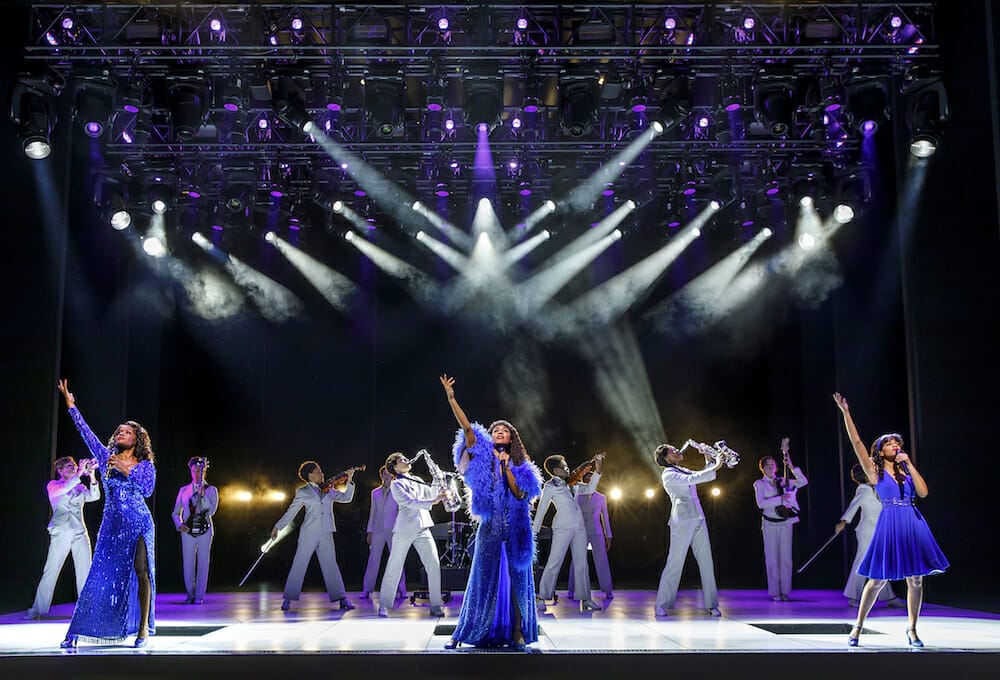As most observers of the Broadway musicals will note (this reviewer among them), there are two trends that dominate “new” musicals: musicalizations of popular films (of which PRETTY WOMAN is the latest example) and songbook musicals that build stories (sometimes biographical, sometime fictional) around the popular songs of recording artists. Not surprisingly, the title alone of SUMMER: THE DONNA SUMMER MUSICAL tells you which category it falls into. But if this musical which opened in April 2018 is only the latest in a series of musical biographies that recently included the Gloria Estefan bio ON YOUR FEET and will soon include THE CHER SHOW and AIN’T TOO PROUD (about The Temptations), SUMMER at least has the director and choreographer who established the genre: Director Des McAnuff and choreographer Sergio Trujillo, who made JERSEY BOYS a monster, long-running hit. It staged the greatest hits of Frankie Valli and the Four Seasons with flash and style, and boasted a strong story and script by Marshall Brickman and Rick Elice. SUMMER lacks a script as strong as JERSEY BOYS, but it has McAnuff and Trujillo and the considerable songbook of Summer, plus the powerhouse vocals of LaChanze and Ariana DeBose. For many people, that will be enough.
Fitting tribute to the music of the “Queen of Disco”
Summer recorded 42 hit singles during her lifetime, with most of her hits – like “Love to Love You Baby,” “I Feel Love,” “Heaven Knows,” “Last Dance,” “On the Radio,” and “She Works Hard for the Money” coming between 1974 and 1983, though Summer recorded new material up until 2010. (She died in 2012). Her greatest hits came during the late ‘70s/early ‘80s and she became known as the “Queen of Disco.” Disco-goers of the seventies are now Broadway-goers of the early 21st Century and the nostalgic resonance Summer’s songs had for the audience was evident from the crowd’s shrieks and applause each time the offstage band would begin a song’s familiar opening vamp. The fans got their money’s worth. With LaChanze playing the older “Diva” Donna, DeBose the younger “Disco Donna” and Storm Lever as the young teen “Duckling Donna,” the performances are worthy of the artist who originated them. The pleasures were visual as well as aural when accompanied by Trujillo’s angular, precise and distinctive dances, the brilliant costumes by Paul Tazewell and the lighting design by Howell Binkley.
SUMMER: THE DONNA SUMMER MUSICAL – a woman succeeding in a man’s world
This is not to say there is no story behind the music worth telling. Summer’s life had its challenges and unexpected turns. Her vocal career began in her church choir in Massachusetts, and she additionally was given solos to sing to the congregation. These plum assignments weren’t the least of the attentions she received from her pastor. A victim of sexual abuse, she left the home of her strict parents to take a job with the European company of the musical HAIR, which took her to Germany where she met her first husband, gave birth to a daughter and met the legendary composer-producer Giorgio Moroder who would make her a star. Moroder viewed her perfect pitch voice as the ideal vocal instrument for the synthesizer-driven music he was pioneering and their early collaborations like “I Feel Love” and “Love to Love You Baby” came to define electronic dance music.
Summer’s first marriage quickly ended in divorce and was followed by an affair with an obsessed and dangerous German lover. She later had a stable marriage with the musician Bruce Suddano, but on the professional front, she had legal battles with the recording company Casablanca Records and its founder Neil Bogart. Summer’s struggles to sing the music she loved – she was never comfortable or satisfied to be only the “Queen of Disco” – and to establish agency and independence apart from the male-dominated music industry and her personal life – is an important and potentially moving story. The way it is told in the book by Colman Domingo, Robert Cary and McAnuff, though, it never really builds to enough of a climax or cartharsis. “Diva Donna” (LaChanze) serves as narrator throughout the 1:45 intermissionless show, in a conceit that purports to be Summer’s last concert – “the concert of a lifetime.” It’s a device that fights against story development and a more typical dramatic arc. The story is narrated by of Diva Donna and given that she is near the end of her life she knows how the story ends. Her mood and emotions are thus relatively constant throughout and thusly, we don’t feel as much of a journey.
Adding to that remove from the story and characters is the casting of the women in drag for most of the secondary characters. It’s implied in the script to be a statement about the male-dominated world in which Summer lived and competed (“There have to be SOME men,” Diva Donna explains). Fair enough, but for this reviewer, the obvious theatricality of the drag was distancing. The more significant men of the story are nicely played by Ken Robinson as Donna’s father, Aaron Krohn as Neil Bogart, Jody Reynard as first husband Helmuth Foster, understudy Drew Wildman Foster as second husband Bruce Sudano and Harris M. Turner as the Pastor. LaChanze doubles as Donna’s mother Mary in addition to her Diva Donna duties. The action is played on a simple unit set designed by Robert Brill, with set pieces rolled on and off to suggest specific places.
Songs over story
While the songs dazzle, and occupy the bulk of the stage time, there’s a presentational, detached quality to the storytelling without much of an arc or ascending motion. The flash and showmanship of the numbers, though frequently stunning gradually starts to impress less and in fact gets a bit fatiguing before the finale of Summer’s upbeat hit, “Last Dance.”
It seems the creative teams behind “catalog shows” like this – and their producers – have a choice to make. To create a true musical play, with a satisfying story and characters like any other play; or to give the audience exactly what they know and what they came for – the songs. JERSEY BOYS managed to do both.
SUMMER in the end, is more a tribute concert, but it’s one staged and sung by some of the best in the business. Those who come for the songs won’t be disappointed.
When:
Open-ended
Tuesdays and Thursdays at 7:00pm; Wednesdays at 2:00 and 7:00 pm, Fridays at 8:00 pm, Saturdays at 2:00 pm and 8:00pm, Sundays at 3:00 pm
Where:
Lunt-Fontanne Theatre
205 W. 46th St.
New York, NY 10036
Tickets:
$48.00 - $159.00
For tickets and more information visit the website for SUMMER: THE DONNA SUMMER MUSICAL
Photos by Joan Marcus or Matthew Murphy, as noted.
About the Author:
John Olson is an arts carnivore who is particularly a love of music, theatre and film. He studied piano, trombone and string bass into his college years, performing in bands and orchestras in high school and college, at the University of Wisconsin-Madison. While working as an advertising agency account manager, he began a second career as an arts journalist and is now principal of John Olson Communications, a marketing and public relations business serving arts and entertainment clients.

